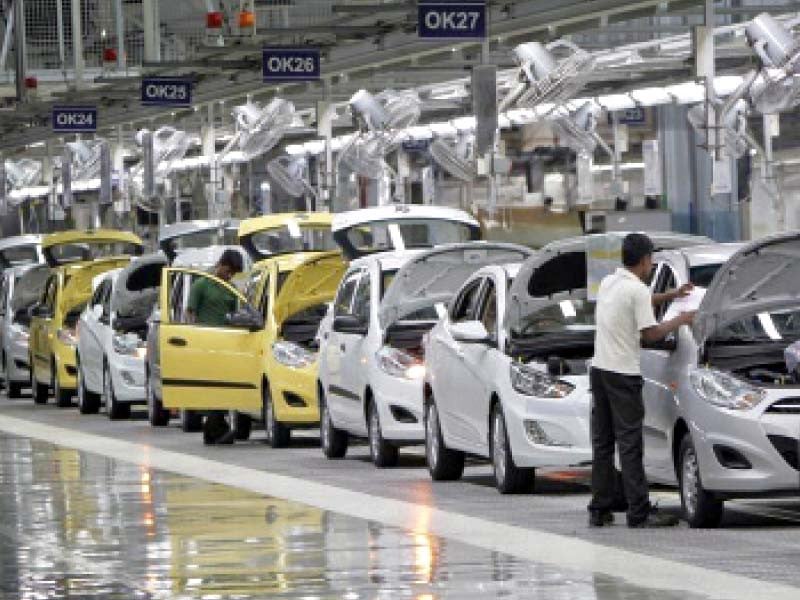
The Indus Motor Company (IMC) has hiked the prices of different models of its cars in the range of Rs287,000 to Rs1.26 million owing to a significant surge in import cost.
“Yes, we have increased the prices,” IMC CEO Ali Asghar Jamali confirmed The Express Tribune.
“The increase in freight charges, rupee-dollar parity and surging global commodity prices encouraged the company to pass on the impact of rising cost to its end users.”
The firm increased prices of Corolla variants in the range of Rs369,000-490,000 per unit.
Corolla 1.6MT model price increased by Rs369,000 to approximately Rs3.75 million, while Altis Grande 1.8 CVT price rose by Rs490,000 to around Rs4.69 million.
The company increased the rate of Yaris 1.3MT by Rs287,000 to Rs3 million, while it surged Yaris ATIV X CVT 1.5’s price by Rs324,000 to around Rs3.5 million.
The price of IMV I 4x4 rose by Rs640,000 to Rs6.11 million. Revo V AT Rocco is now available at Rs9.32 million following a surge of Rs847,000.
The cost of Fortuner 2.7G rose by Rs930,000 to around Rs9.5 million, while Fortuner Legender Diesel price has been revised up by Rs1.26 million to around Rs12.1 million.
This is the second time in a month that the company has increased its prices. However, details show that this time, the prices of only those models were hiked that did not witness upward revisions earlier.
Ismail Iqbal Securities analyst Muqeet Naeem underlined that the significant surge in freight cost, steel (sheet) prices in the world market and the rupee depreciation against the US dollar, altogether, forced the company to increase its car prices.
He elaborated that the freight charges recently went up in the wake of the latest lockdown in China, which runs one of the world’s biggest and busiest ports.
Moreover, the cut in trade through black sea amid the ongoing Russia-Ukraine war has also contributed towards increasing freight charges.
He underlined that the Russia-Ukraine war also remained a key reason behind the latest increase in steel (sheet) price.
Russia is among the biggest steel exporters in the world. However, economic sanctions against Moscow convinced the global steel buyers to not purchase steel products from Moscow. This has impacted steel supplies in the world.
Moreover, Pakistani currency continued to lose its value against the US dollar in the inter-bank market for the seventh consecutive day on Tuesday.
The rupee lost 0.26% to touch a new all-time low of Rs181.73 against the greenback on Tuesday. In the past seven working days, the rupee has cumulatively dropped 1.8% (or Rs3.22).
“The rupee devaluation has spiked the car import prices,” Naeem mentioned.
“Other car manufacturers and marketers may also increase their unit prices, going forward,” he projected, adding: “The trend suggests they (car assemblers) follow one another in the price-hike move”.
Earlier, car assemblers increased prices in November 2021 owing to similar reasons like spike in rates of cold-rolled coils (steel sheets), devaluation of Pakistani rupee and a rise in freight cost.
In January 2022, they again revised up their rates on the back of imposition of regulatory duty on imports.
The repeated increase in prices, however, had largely failed to significantly impact their sales, he underlined.
Published in The Express Tribune, March 23rd, 2022.
Like Business on Facebook, follow @TribuneBiz on Twitter to stay informed and join in the conversation.


1732274008-0/Ariana-Grande-and-Kristin-Chenoweth-(1)1732274008-0-165x106.webp)















COMMENTS
Comments are moderated and generally will be posted if they are on-topic and not abusive.
For more information, please see our Comments FAQ